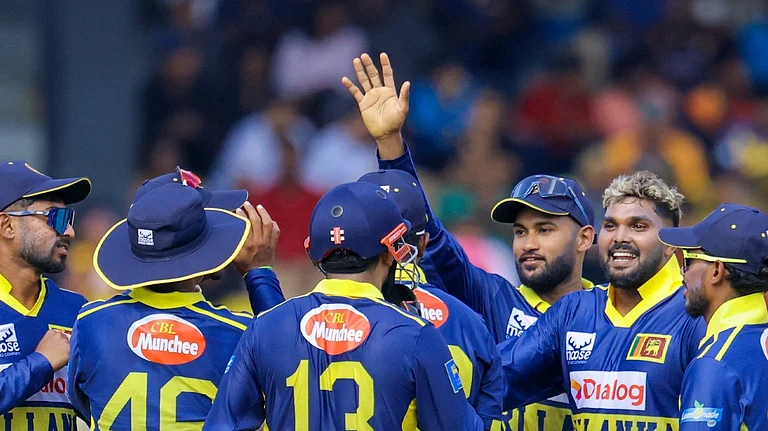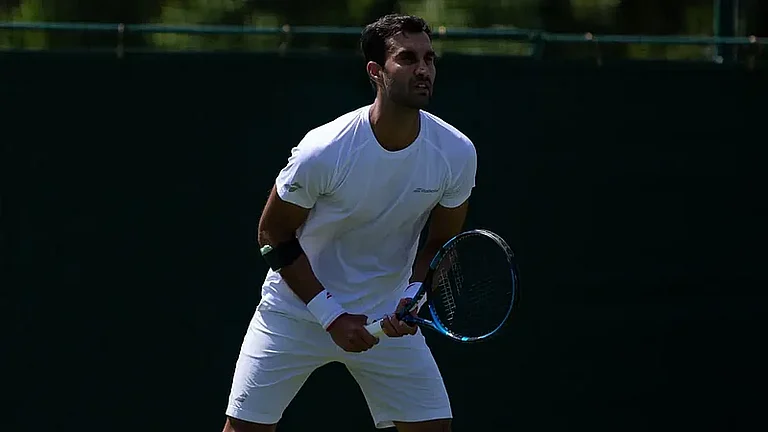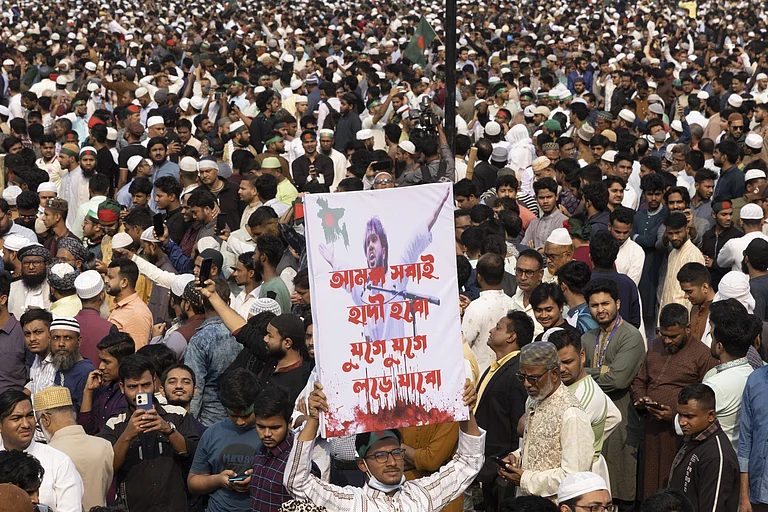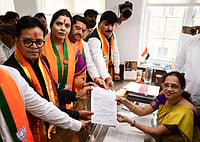HEAR someone asking for dowry? Well, what they're actually asking for is trouble. Thanks to the recent Supreme Court ruling which says that demand for dowry even during negotiations for marriage is an offence under the Dowry Prohibition Act of 1961. Rendering a heartening and liberal interpretation to the expression 'demand for dowry', a division bench comprising Justices A.S. Anand and M.K. Mukerji has stated that demand made during the pre-marriage negotiation is as much a penal offence as one made at the time of the marriage. Implying that aggrieved parties can now move the court even if the marriage hasn't taken place.
A landmark judgement indeed. One that seems to be the first step towards legally dealing with the fact that dowry is not just linked to marriage, but a predicament intrinsically woven into the Indian woman's life. What plagues a woman before, during and after marriage, the ruling implies, will now aptly be considered a criminal offence on all these occasions.
This is a verdict welcomed warmly by all progressive Indians. Certainly so by feminist organisations all over the country who have been privy to many a pathos-ridden account of the lives of hapless dowry victims.
"Apart from the fact that it is going to be a deterrent to dowry, this ruling will also save emotional lives," says Satyarani Chaddha, president of Shakti Shalini, a Delhi-based feminist organisation working with dowry victims for the past 16 years. Citing innumerable cases where embittered fathers have ill-treated their own daughters because of their inability to organise finances for dowry, Chaddha says: "Now these parents could do something positive with their frustrations and take the culprits to court instead of resenting the girl's existence."
Acutely aware of the need for this vital legal amendment in the Dowry Act, the National Commission for Women (NCW), in fact, recommended "making pre-marriage negotiation and abetment in dowry cases a criminal offence" in 1993. "We have also been lobbying for Dowry Prohibition Officers at the district and lower levels to see that the laws are executed," says NCW chairperson Mohini Giri, " Alaw in the matter is better than no law at all. But a law that cannot be implemented is hardly of any use."
Indeed, enforcement of the ruling would mean empowerment for women. But what will be considered 'evidence' enough to nail the avaricious demanders? Ironically, though the ruling given on a petition filed by an IAS trainee Gopal Reddy in 1985 summarily rejected his submission that dowry demanded before marriage is not an offence, the apex court pronounced him not guilty due to "benefit of doubt". "The principles are fine but what about the process that demands inconclusive proof? Even cases of straight harassment after marriage linger on for years. So, how will this new law work?" asks Maitreyie Chatterjee of Calcutta-based NGO, Forum Against Oppression of Women. Marriage negotiations being such a delicate matter in the Indian milieu, she wonders how the bride's 'humble' parents are expected to record the demands made to them so as to be able to produce them in court later.
Vice-president of the Tamil Nadu unit of the All India Democratic Women's Association (AIDWA) Mythili Sivaraman feels that the ruling will at best put the fear of law in the minds of people. "Though these amendments are necessary, an expeditious judiciary and an understanding police force would help much more," she says.
In complete agreement, Viji Srinivas president of Aditi, a Patna-based women's organisation working in rural Bihar, emphasises the futility of all such laws in a state where the last recorded figure for dowry deaths in 1994 stands at an appalling 279. May '95 alone saw 19 dowry deaths in the small Parihar block of Sitamarhi district. "Last month, the police at Dumra village refused to accept an FIR for a child rape. How do you expect such new rulings to work in the same place?" argues Srinivas, "it is no more than some progressive legalese meant for the urban elite." An observation somewhat akin to the opinion of Bombay-based feminist lawyer Flavia Agnes. "These sporadic judgements don't really alter the fate of women but they do give advocates like us some leading lights," she says. Agnes offers some tips for those who might want to prosecute under the new amendment. Try bargaining with the groom's family through letters or call in some neutral people to witness the talks before marriage, she advises. Warning that a tape recorded conversation is not always a clincher in court.
How the police plans to investigate such complaints, however, remains to be seen. "We'll have to search for some way, I suppose," says DCP S.S. Grewal of the capital's Crime Against Women Cell. He feels that talking to the concerned marriage brokers, interrogating independent witnesses and going through letters exchanged between families might just do the job.
And then again it might not. In fact, nothing really will, until pro-women laws gain social acceptance. Observes Vinay Bharadwaj, secretary of the feminist organisation, Mahila Dakshita Samiti: "The gap between what the law gives women and social reality is enormous. Few will agree to marry a girl already involved in a dowry case before marriage or even her sister. Finally, it is social attitudes that need to be amended more than the laws."


























